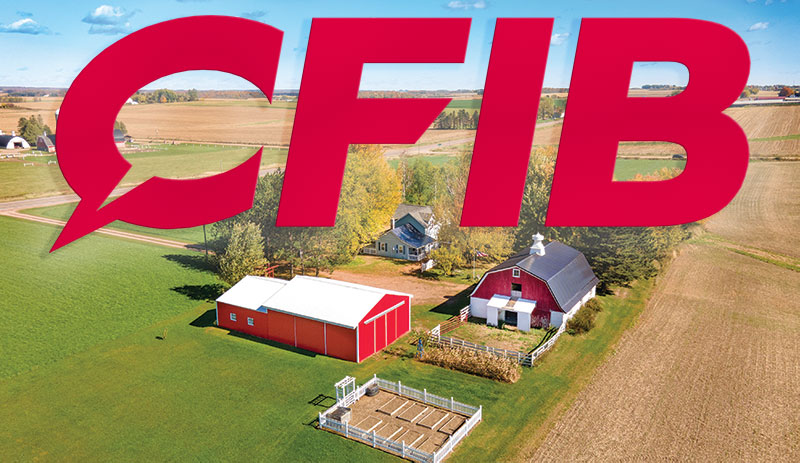CFIB Report: The effects of capital gains changes on Canadian agriculture

Like workers across the country, small business owners, including farmers, work hard throughout their lives to build up savings to eventually take a well-deserved retirement
by Bradlee Whidden – Canadian Federation of Independent Business (CFIB)
Unlike the workers they employ, agri-business owners don’t get to rely on a pension account funded partially by other people that builds those savings for them. Instead, these business owners invest their money and time into building a business they will eventually sell to retire, while funding the pension accounts of their employees.
This effort is no simple task. Agri-business owners assume all the risk in new and ongoing ventures, as it is their investment on the line if the business fails—a real possibility in the industry, given the vulnerability to adverse weather, labor shortages, and other common threats to the stability of Canadian agriculture. They do this with the understanding that they can benefit from the fruits of their labor, earning profit from the increased value of their business and its assets since they started it years ago.
Which is why some of the recently announced changes to capital gains taxation outlined in the federal government’s 2024 budget are so concerning. Under the new system proposed by the federal government in its last budget, capital gains made by small business owners above $250,000, along with the lifetime capital gains exemption (LCGE) and the Canada Entrepreneurs Incentive (CEI), will see 67% of their gains subject to taxation instead of the previous 50%.This will be a big bite for many in the agriculture sector looking to sell their land, equipment, or business itself.
It should be noted that these changes to capital gains taxation could actually help some agri-business owners keep more of their money when selling their assets. For example, the increase in the LCGE from $1 million to $1.25 or the aforementioned CEI under which only 33% of gains will be subject to taxation, lower than both the new and old rate. However, the latter excludes the sale of farm assets, is only available to founding investors, and has a long phase in period (increasing by $200,000 per year until 2034 when it reaches $2 million). The result is that many farms across the country will feel the sting of the higher 67% inclusion rate.
As a country we should be encouraging farmers to grow their agri-businesses to their fullest potential. However, these changes disincentivize agri-businesses from becoming larger and more innovative operations.
This effect is particularly relevant in the context of intergenerational wealth transfer. Canada is on the cusp of a massive transfer of potentially more than $2 trillion in business assets from the retiring older generation to younger generations. Canada needs enthusiastic younger farmers to pick up the torch to maintain a heathy agricultural industry. Limiting the potential success they could have in this sector will discourage many from entering a profession that involves a lot of hard work and dedication, but is essential to the wellbeing of Canadians.
Additionally, farmers are pointing out that the changes can limit the day-to-day profits younger agri-business owners earn for both themselves and to fund the retirement of their parents who they’ve taken over the family farm from. Multiple organizations, including the Grain Growers of Canada, Canadian Federation of Agriculture and Canadian Federation of Independent Business (CFIB) have all sounded the alarm to the federal government over the negative impact these changes will have on Canadian agriculture.
CFIB is calling on the federal government to abandon the increase in the general inclusion rate to 67%, or at least grandfather all existing gains for negatively impacted businesses so as not to pull the rug out from under agri-business owners who worked for years under the impression that they would be taxed at the older rate. Additionally, the Canadian Entrepreneurs Incentive, while a good idea, should have a shorter timeline for implementation and be available to non-founders and extend to farm and fishing properties.
Successful agri-businesses should be supported, not punished for their growth.
Click here to sign CFIB’s petition against the newly announced changes to capital gains taxation.
Bradlee Whidden is a Policy Analyst for the Canadian Federation of Independent Business (CFIB).












